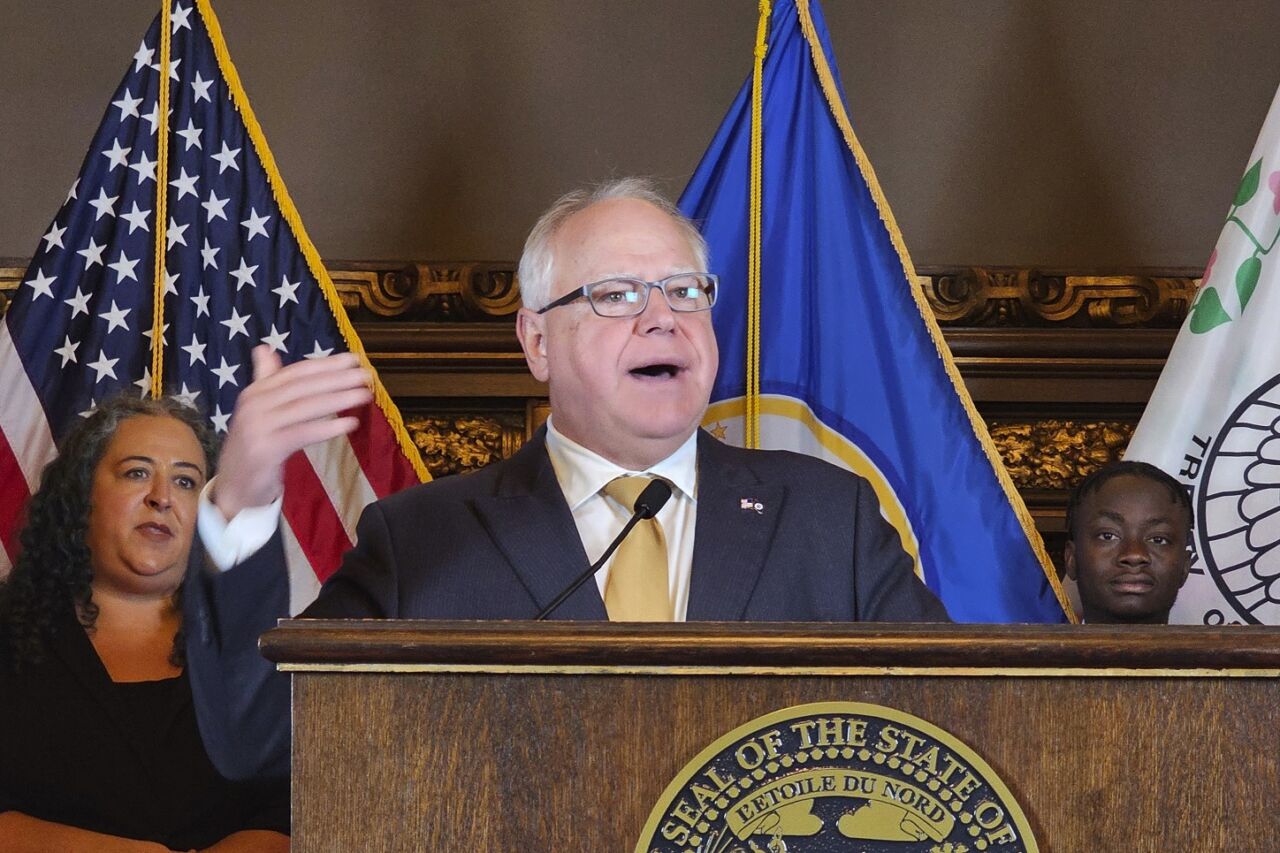Minnesota
Minnesota governor names first Black chief justice of state Supreme Court, Natalie Hudson

MINNEAPOLIS (AP) — Gov. Tim Walz on Wednesday promoted Natalie Hudson to become chief justice of the Minnesota Supreme Court this fall, which will make her the first person of color to lead it.
Hudson, who is Black, has been an associate justice since 2015. She will lead the high court when current Chief Justice Lorie Gildea retires in October.
“Justice Hudson is one of our state’s most experienced jurists. She has a strong reputation as a leader and consensus builder,” Walz said in a statement. “I am confident that she will advance a vision that promotes fairness and upholds the dignity of all Minnesotans.”
The appointment will leave only one Republican-appointed justice but isn’t expected to affect the ideological balance of what court watchers celebrate as a nonpartisan court, especially compared with neighboring Wisconsin’s divided state Supreme Court and an increasingly conservative U.S. Supreme Court.
Governors appoint judges in Minnesota without legislative confirmation. A Democrat appointed Hudson to the high court in 2015, after she had served as a judge on the Minnesota Court of Appeals for 13 years, to replace retiring Justice Alan Page, the state Supreme Court’s first Black justice.
“This is a tremendous responsibility that I approach with humility and resolve, seeking to continue the work of my predecessors in administering one of the best state court systems in the nation,” Hudson said in the same statement released by Walz.
Anansi Wilson, director of the Center for the Study of Black Life and the Law at the Mitchell Hamline School of Law, said Hudson’s promotion is historic and important because she brings not only expertise but lived experiences. “It’s important to have a Black woman there who’s principled, studied and prominent in the community,” he said.
Wilson also said it’s significant that Minnesota, a mostly white state known partly for the murder of George Floyd, is seeing more Black people represented in positions of authority, such as Page, and Keith Ellison, the state’s first Black attorney general.
“What does it mean that Black people are becoming the face of justice in this state and not just injustice?” he asked.
Waltz named Karl Procaccini, his former general counsel, to fill Hudson’s spot as associate justice.
Procaccini is a visiting professor at the University of St. Thomas School of Law. He served as the top lawyer in the governor’s office, where his work included the state’s response to the COVID-19 pandemic.
Minnesota House Republican Leader Lisa Demuth criticized him for his role in the lockdowns and business restrictions that Walz imposed, while the environmental group WaterLegacy raised concerns about the appointment because Procaccini used to represent PolyMet, a mining company that has long been tied up in litigation and was the subject of a scathing Minnesota Supreme Court decision earlier this month.
When Hudson and Procaccini assume their new posts, all but one of the seven Supreme Court justices will have been appointed by Democratic governors.
Gildea, who announced her plan to retire in June, was appointed by a Republican governor. So was current Associate Justice G. Barry Anderson. He will reach the mandatory retirement age of 70 in October, 2024, allowing Walz to name a third justice.
Gildea joined Waltz in praising Hudson, calling her an “outstanding choice” to be the next chief justice.
“With more than 20 years of service as an appellate court judge, Justice Hudson is among the most talented and respected jurists in the state,” Gildea said in the announcement.
U.S. District Judge Wilhelmina Wright, the state’s first Black female federal judge, who formerly served with Hudson on the Supreme Court, also welcomed Hudson’s appointment.
“As a former colleague, I know she brings to this leadership role her keen intellect, her broad legal experience, and her respect for the rule of law,” Wright said in the statement released by the governor.
An independent governor named Hudson to the Minnesota Court of Appeals in 2002. Before that, she practiced criminal appellate law with the state attorney general’s office and served as the St. Paul city attorney. She also served on the Minnesota Supreme Court Racial Bias Task Force from 1991-1993. She is a graduate of the University of Minnesota Law School.
Peter Knapp, a professor and court-watcher at the Mitchell Hamline School of Law, said Hudson will help ensure that the court usually speaks with a clear, unified voice. He said Hudson doesn’t dissent very often, and when she has, she has sometimes sided with the two Republican-appointed justices, Gildea and Anderson.
The Minnesota Supreme Court isn’t particularly ideological or partisan, Knapp said, and he doesn’t expect a shift under Hudson even as the court becomes more dominated by Democratic appointees.
“I don’t think we’re seeing the dawn of a more ideological court,” he said. “That’s just not what this institution has been about.”

